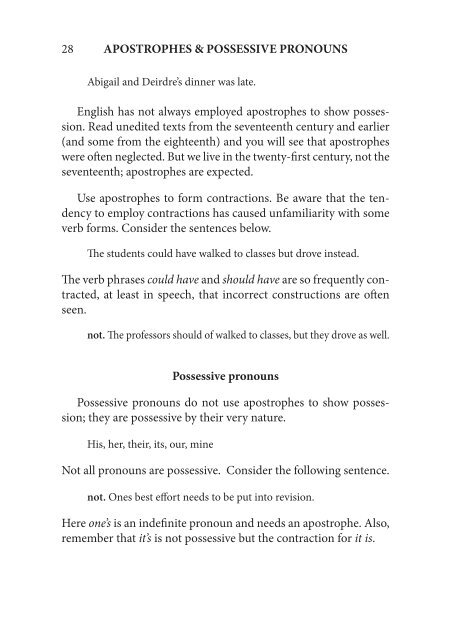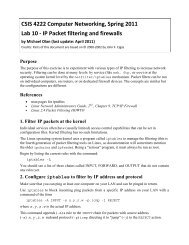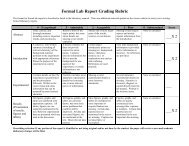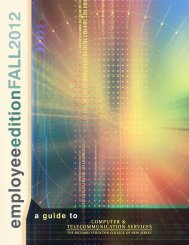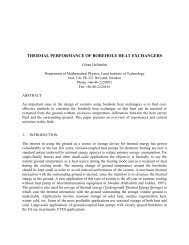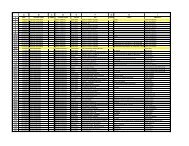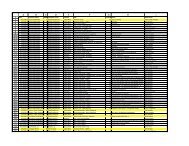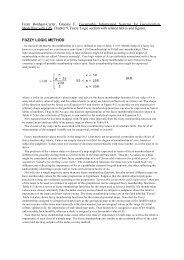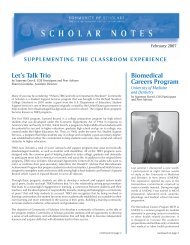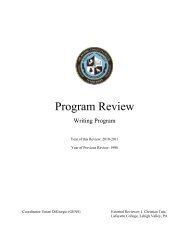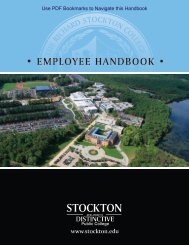Brief Guide to Punctuation - Stockton College
Brief Guide to Punctuation - Stockton College
Brief Guide to Punctuation - Stockton College
You also want an ePaper? Increase the reach of your titles
YUMPU automatically turns print PDFs into web optimized ePapers that Google loves.
28 APOSTROPHES & POSSESSIVE PRONOUNS<br />
Abigail and Deirdre’s dinner was late.<br />
English has not always employed apostrophes <strong>to</strong> show possession.<br />
Read unedited texts from the seventeenth century and earlier<br />
(and some from the eighteenth) and you will see that apostrophes<br />
were often neglected. But we live in the twenty-first century, not the<br />
seventeenth; apostrophes are expected.<br />
Use apostrophes <strong>to</strong> form contractions. Be aware that the tendency<br />
<strong>to</strong> employ contractions has caused unfamiliarity with some<br />
verb forms. Consider the sentences below.<br />
The students could have walked <strong>to</strong> classes but drove instead.<br />
The verb phrases could have and should have are so frequently contracted,<br />
at least in speech, that incorrect constructions are often<br />
seen.<br />
not. The professors should of walked <strong>to</strong> classes, but they drove as well.<br />
Possessive pronouns<br />
Possessive pronouns do not use apostrophes <strong>to</strong> show possession;<br />
they are possessive by their very nature.<br />
His, her, their, its, our, mine<br />
Not all pronouns are possessive. Consider the following sentence.<br />
not. Ones best effort needs <strong>to</strong> be put in<strong>to</strong> revision.<br />
Here one’s is an indefinite pronoun and needs an apostrophe. Also,<br />
remember that it’s is not possessive but the contraction for it is.


